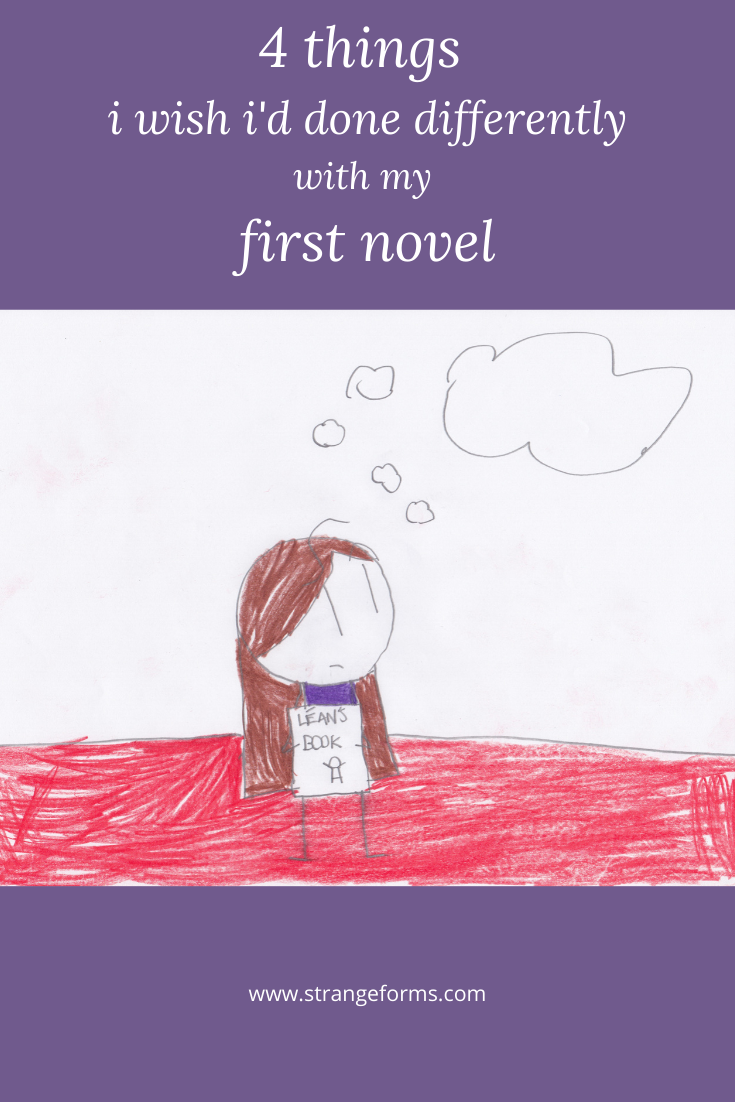My first novel came out in 2014. I reread it last year, around its fifth birthday, and it’s not bad. (I’m willing to whisper that here, when the headweasels aren’t listening.)
Some people really, really liked it. (Every now and then, I hear from one of these readers, and it makes my day. Just saying.) Some people really, really didn’t like it. Plenty of people probably read it and thought, “Yeah … that wasn’t bad.”
But no book – possibly no piece of art – is ever quite as good as its platonic ideal in the artist’s mind.
I use the word “platonic” advisedly, by the way: we’re talking shadows on the cave wall here. A finished piece of work necessarily involves discarded possibilities, diminished dimensions of potential. This is why artists keep working, chasing that receding horizon, trying to bring as much as possible through into the real world intact.
Thus, my book falls short of what it could be. And as it happens, I know many of the reasons why.
Here are four things I’d do differently if I had a time machine:
1. I’d trust my characters more
It feels as though a lot of what I was trying to do as I wrote this book was to clothe my characters in enough plot that the reader wouldn’t get bored. I’m convinced, now, that this wasn’t necessary. If I’d believed more strongly in these characters and their relationships, if I’d let them grow and breathe and speak in their own voices, I suspect I’d have ended up with a better book.
2. I’d plan
I’m more of a plotter than a pantser, really, deep down, and I wrote this novel without a plan. The result was that I slogged through about half a dozen drafts before I had any clue what I was really writing about – the broader themes, I mean. Then I had to go back and rework large sections of the book so that they reflected what I wanted to say. That was surprisingly difficult to do, and I’m pretty sure some of the seams and neck-bolts and so on are still kind of visible. (I have no idea to what extent this is the case, because as it turns out, it’s also surprisingly difficult – if not impossible – to evaluate your own novel as if you were not its author.)
3. I’d figure out sooner what makes a scene
I mean a proper scene, as opposed to a bunch of paragraphs that look plausible and read beautifully but do nothing to advance the story. I am living proof that it’s possible to spend hours, days, weeks, years of your life writing chunks and lumps and gobbets of perfectly nice fiction that simply do not work as scenes – and all without having an inkling that this is what you’re doing. Scene-writing is a crucial aspect of the craft, and one that many rookie novelists get wrong. I wish I’d tumbled to this issue much, much earlier in the process, because it would have saved me a lot of time and effort.
4. Also earlier in the process, I’d do more research
My concern with this novel was to get my story out of my head and onto the page without worrying too much about the real-world details. I didn’t want to get so sidetracked by research that I stopped making progress on the draft – and I must confess I knew myself well: this was a real risk. So I reckoned I’d go back and fill in later. I ended up with a draft full of obviously thin bits, and it wasn’t as easy to patch these up as I’d predicted.
So, what have I learned?
For my second novel, currently in zeroth draft (being the draft before the draft that purports to make sense to anyone outside my head), I’ve solved these four problems (…she said, tempting fate).
- From the outset, the characters have been much clearer than my first lot were until I’d been through numerous rewrites. They feel solid, and it’s often as though they’re making their own decisions about how to behave.
- I did a lot of planning this time before I ever strung two words of actual fiction together. I started from a framework conceived by Randy Ingermanson called the Snowflake Method, which I’ve found extremely useful.
- I have a good grasp now on whether what I’m writing constitutes a scene – and if it doesn’t, I’m quick to change things so that I don’t waste time writing material that will never work.
- Finally, this novel is getting tonnes more research than the first. I’m finding that everything I learn stirs up a new batch of ideas in my mind. The story becomes richer, as if by magic.
Presumably, I’ll be back here in a few years to talk about all the fundamental errors I’m making with this novel even as we speak, but for the moment I’m content to bask in my illusion of competence. I will say, my rewriting muscles are comparatively buff after the nine billion drafts I did of novel no. 1, so I’m actually looking forward to reaching the end of this draft so I can get to the editing part. (I love editing.)
If you’d like help with a novel you’re writing, by the way, you can hire me as a mentor through the Irish Writers’ Centre (I’m up there under Léan Cullinan). And if you work in a different creative discipline, you can also hire me as a coach.
